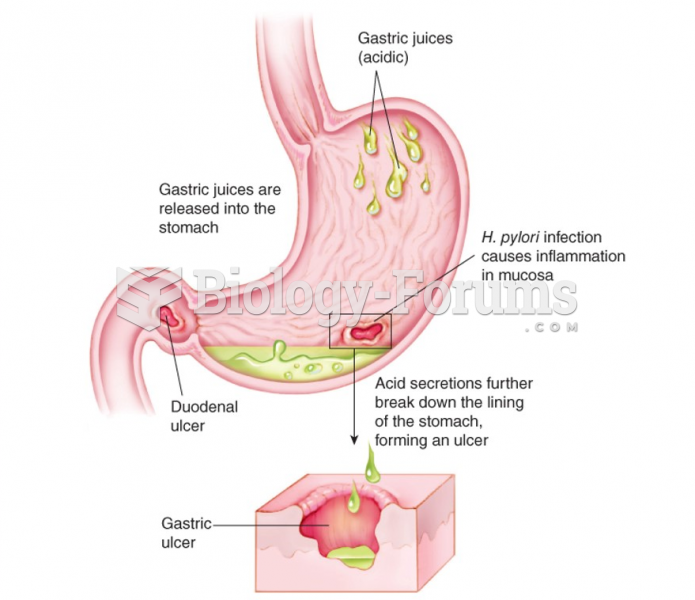|
|
|
By definition, when a medication is administered intravenously, its bioavailability is 100%.
There are over 65,000 known species of protozoa. About 10,000 species are parasitic.
Thyroid conditions cause a higher risk of fibromyalgia and chronic fatigue syndrome.
Carbamazepine can interfere with the results of home pregnancy tests. If you are taking carbamazepine, do not try to test for pregnancy at home.
Anesthesia awareness is a potentially disturbing adverse effect wherein patients who have been paralyzed with muscle relaxants may awaken. They may be aware of their surroundings but unable to communicate or move. Neurologic monitoring equipment that helps to more closely check the patient's anesthesia stages is now available to avoid the occurrence of anesthesia awareness.







